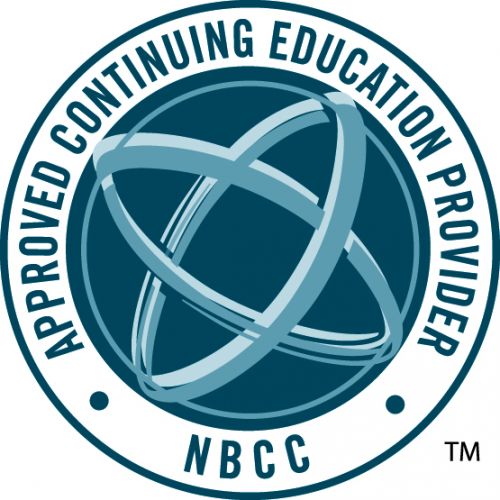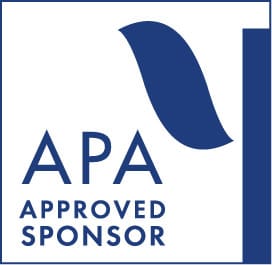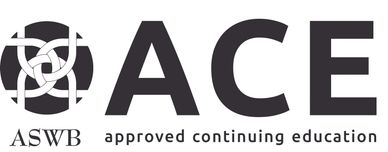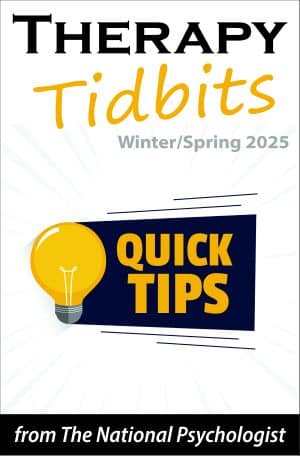- ADHD
- Adults
- Alternative Medicine
- Alzheimers & Aging
- Animal-Assisted Therapy
- Autism
- Behavior Therapy
- Child & Adolescent
- Closeout
- Communication
- Couples-Family-Parenting
- Cultural Diversity
- Depression & Anxiety
- Domestic Violence
- Ethics & Risk Management
- Gender Identity
- HIV-AIDS
- Human Trafficking
- Laws & Rules
- Medical Errors
- Mindfulness & Yoga
- Miscellaneous
- National Psychologist
- Nutrition & Fitness
- Pain Management
- Psychotherapy
- Sexuality
- Substance Abuse
- Suicide
- Supervision
- Trauma & PTSD
Psychological Effects of Shame
Claire Dorotik-Nana, LMFT
$29.00
 Introductory
Introductory
 Online
Online
Course Abstract
Psychological Effects of Shame is a 2-hour online continuing education (CE) course that explores the emotion of shame and how it affects individuals.
This course will teach therapists how to identify shame and the ways in which people try to avoid, ignore, and hide from it. Various topics will be discussed, including shaming about weight, parenting, incarceration, alcoholism, and shopping. Compensatory behaviors resulting from being shamed will also be identified.
This will lead to an examination of the ways in which shame can be socially toxic, both in-person and online, and will highlight how virtual mobs, micro-aggressions, and social shaming (directed towards a person’s size, shape, and weight) can affect a person’s psychological well-being.
We will then discuss the ways in which shame can destroy one’s feelings of self-worth, interrupt learning, exacerbate existing diagnoses, increase criminal behavior, and decrease the willingness to seek support.
Research on shaming and ostracism will be presented along with evidence-based treatment strategies for therapists.
Course #21-38 | 2020 | 44 pages | 15 posttest questions
Learning Objectives
- Define shame and how it relates to guilt
- Describe “fat shaming,” its implications, and psychological effects
- Summarize the effects of shame on our cognitive abilities, emotions, and behaviors
- Explain the connection between shame and the willingness to ask for help
- Describe the adaptive role that shame plays in our lives
- Identify three techniques/interventions that can help ameliorate feelings of shame
Course Directions
This online course provides instant access to the course materials (PDF download) and CE test. The course is text-based (reading) and the CE test is open-book (you can print the test to mark your answers on it while reading the course document).
Successful completion of this course involves passing an online test (80% required, 3 chances to take) and we ask that you also complete a brief course evaluation.
About the Author(s)
Claire Dorotik-Nana, LMFT : Find out More
Claire Dorotik-Nana, LMFT, is a Licensed Marriage and Family Therapist who specializes in post-traumatic growth, optimal performance, and wellness. She is licensed to practice in California and Colorado. Claire earned her BS in Kinesiology and worked as a personal trainer for years before becoming a course developer for International Sports Science Association. Claire is always thinking about ways to improve physical fitness and nutrition as a modality for improving mental health. She also writes in her popular blog, Leveraging Adversity on Psychcentral.
Disclosure
Financial: Claire Nana receives author compensation from Professional Development Resources.
Nonfinancial: No relevant nonfinancial relationships exist.
CE Information
Counseling

Professional Development Resources (PDR) has been approved by the National Board for Certified Counselors (NBCC) as an Approved Continuing Education Provider, ACEP No. 5590. Programs that do not qualify for NBCC credit are clearly identified. PDR is solely responsible for all aspects of the programs.
Professional Development Resources is CE Broker compliant (#50-1635 - all courses are reported within two business days of completion). Professional Development Resources, Inc. is recognized by the New York State Education Department’s State Board for Mental Health Practitioners as an approved provider of continuing education for licensed mental health counselors (#MHC-0135 - Note: New York counselors will receive 2 continuing education credits for completing this self-study course).
Marriage and Family Therapy

Professional Development Resources is approved by the American Psychological Association (APA) to sponsor continuing education for psychologists. Professional Development Resources maintains responsibility for this program and its content. Professional Development Resources is also approved by the National Board of Certified Counselors (NBCC ACEP #5590); the Association of Social Work Boards (ASWB #1046, ACE Program); the New York State Education Department's State Board for Mental Health Practitioners as an approved provider of continuing education for licensed marriage and family therapists (#MFT-0100 - Note: New York MFTs will receive 2 continuing education credit(s) for completing this self-study course); the Texas Board of Examiners of Marriage and Family Therapists (#114); and is CE Broker compliant (#50-1635 - all courses are reported within two business days of completion).
Occupational Therapy

Professional Development Resources is an AOTA Approved Provider of professional development. Course provider ID# 3159. This distance learning-independent course is offered at 0.2 CEUs, introductory level, OT Service Delivery]. The assignment of AOTA CEUs does not imply endorsement of specific course content, products, or clinical procedures by AOTA.
Professional Development Resources is CE Broker compliant (#50-1635 - all courses are reported within two business days of completion).
Psychology

Professional Development Resources is approved by the American Psychological Association (APA) to sponsor continuing education for psychologists. Professional Development Resources maintains responsibility for this program and its content.
Professional Development Resources is CE Broker compliant (#50-1635 - all courses are reported within two business days of completion). Professional Development Resources, Inc. is recognized by the New York State Education Department’s State Board for Psychology as an approved provider of continuing education for licensed psychologists (#PSY-0145).
School Psychology

Professional Development Resources is approved by the American Psychological Association (APA) to sponsor continuing education for psychologists. Professional Development Resources maintains responsibility for this program and its content.
Professional Development Resources is CE Broker compliant (#50-1635 - all courses are reported within two business days of completion). Professional Development Resources, Inc. is recognized by the New York State Education Department’s State Board for Psychology as an approved provider of continuing education for licensed psychologists (#PSY-0145).
Social Work

Professional Development Resources, #1046, is approved as an ACE provider to offer social work continuing education by the Association of Social Work Boards (ASWB) Approved Continuing Education (ACE) program. Regulatory boards are the final authority on courses accepted for continuing education credit. ACE provider approval period: 6/12/2022 - 6/12/2025. Social workers completing this course receive 2 clinical continuing education credits.
Professional Development Resources is CE Broker compliant (#50-1635 - all courses are reported within two business days of completion). Professional Development Resources, Inc. is recognized by the New York State Education Department's State Board for Social Work as an approved provider of continuing education for licensed social workers (#SW-0664 - Note: New York social workers will receive 2 continuing education credit(s) for completing this self-study course). Professional Development Resources is also approved by the Texas State Board of Social Worker Examiners (#5678).
Teaching
Professional Development Resources is approved by the American Psychological Association (APA) to sponsor continuing education for psychologists. Professional Development Resources maintains responsibility for all programs and content. Professional Development Resources is also approved by the National Board of Certified Counselors (NBCC ACEP #5590); the Association of Social Work Boards (ASWB Provider #1046, ACE Program); the Continuing Education Board of the American Speech-Language-Hearing Association (ASHA Provider #AAUM); the American Occupational Therapy Association (AOTA Provider #3159); the Commission on Dietetic Registration (CDR Prior Approval Program); the New York State Education Department’s State Board for Psychology as an approved provider of continuing education for licensed psychologists (#PSY-0145), State Board for Mental Health Practitioners as an approved provider of continuing education for licensed mental health counselors (#MHC-0135) and marriage and family therapists (#MFT-0100), and the State Board for Social Workers as an approved provider of continuing education for licensed social workers (#SW-0664); the Texas Board of Examiners of Marriage and Family Therapists (#114) and State Board of Social Worker Examiners (#5678); and is CE Broker compliant (#50-1635 - all courses are reported within two business days of completion).
Customer Testimonials
Difficult subject, written well. I found very interesting.
Interesting sections on the social media and political/environmental issues surrounding shame.
I really appreciated the organization of the presentation, especially the sections that reviewed the relevant points. Well done!
Appreciated the depth of knowledge expressed very clearly.
Very good overview and pertinent details.
More Testimonials
Good course. I enjoyed the reading and it provided some information that was new and somewhat surprising!
Excellent course. Well organized, easy to complete, and contained many useful therapeutic interventions
I liked the exercise for clients & will use them for myself.
Good review with interesting information on recent research.
Great course. I like the notion that being more "connected" leads to less feelings of shame.
The course was very interesting and kept my attention. The material can be used in my day to day work.
I found it very helpful that the author summarized each section's important points and repeated important points throughout the module.
Shame is central to a lot of mental health issues, often without client insight and awareness. This course is a great introduction to that for those who are new to this concept as well as a great addition to the shame literature for those who have experience with discussing shame in a clinical practice. I also recommended the book, Letting Go of Shame: Understanding How Shame Affects Your Life by Ronald Potter-Efron and Patricia Potter-Efron. It's a great resource.
Excellent course, it was enlightening!!!
Very nicely presented. Useful information, including how to apply it.
Excellent course! This is the best I've taken on your site!
I thought this course was fascinating from start to finish.
The suggestions for use with clients were especially helpful and will be easy to implement.
I found this course very interesting, much more than I had anticipated. I also found it difficult so that it was necessary to re-read sections and not because it was poorly written but because it was packed with information. I did not want to miss any information. And actually, I am going to go back and re-read sections of it after this is all processed. I would certainly recommend the course to others, professionals and non-professionals. Humans ought to have at least a sense of what this course is saying.
This CE was particularly well-written, and I appreciated the interventions for clients.
Good research used to support concepts.
Great class. Lots of info relevant to my practice.
Practical and helpful, easy to see ways I can use this in my work.
Excellent course covering lots of angles related to shame.
Thank you very much! This is a very relevant topic and I liked the different research studies cited and practical applications.
This was a great course with very useful information.
Great course. Interesting presentation of social and emotional experiences, research, and events. Love this course. Thanks.




